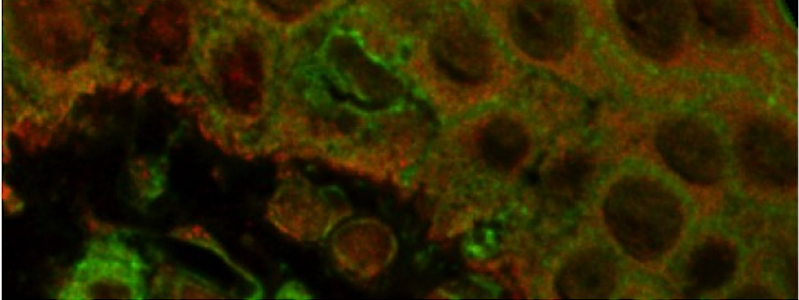Interleukin-1 family cytokine biology

IL-1 family cytokines play an important role in initiating inflammation and innate immunity, as well as in polarising appropriate adaptive immune responses. However, these processes need to be tightly regulated, as excessive immune activation can cause immunopathology and lead to the development of chronic inflammatory diseases, such as rheumatoid arthritis, psoriasis, or inflammatory bowel disease. The pro-inflammatory activity of IL-1 family cytokines is thus controlled at many levels, including inhibition by antagonistic family members, which limit inflammatory responses.
Over the last 10 years, a significant part of our work has focused on the pro-inflammatory IL-1 family cytokine IL-33. We examined the regulation of IL-33 expression and activity, as well as its role in inflammatory diseases. In parallel, we contributed to a better understanding of the processing and maturation of the IL-33 protein. Finally, we recently described new functions for IL-33 in promoting myeloid cell expansion and differentiation.
In addition, we are particularly interested in the biology of the anti-inflammatory IL-1 family cytokine IL-38 and in its role in regulating inflammatory processes in epithelial barrier tissues. An important focus of our research is the analysis of the molecular mechanisms underlying the biological effects of IL-38, as this knowledge may translate into novel therapeutic strategies for inflammatory diseases.
SPECIFIC EXPERTISE
Our group has expertise in the study of:
- Inflammation and its resolution/inhibition, autoinflammation and chronic inflammatory diseases. This includes generation and use of genetically modified mouse lines in models of local (joint, skin) and systemic inflammation, analysis of inflammatory read-outs, histopathology and immunostaining, immunophenotyping, culture of primary human and mouse cells and cell lines, and induction and analysis of inflammatory responses in vitro.
- Cytokine biology and cellular and molecular mechanisms of action of IL-1 family cytokines. Over the years, we have generated a number of tools, including genetically modified mouse lines, vectors for cytokine or receptor overexpression, blocking antibodies, specific cytokine or receptor-expressing cell lines, and bioassays.
SELECTED PUBLICATIONS
Lu Y., Basatemur G., Scott I.C., Chiarugi D., Clement M., Harrison J., Jugdaohsingh R., Yu X., Newland S.A., Jolin H.E., Li X., Chen X., Szymanska M., Haraldsen G., Palmer G., Fallon P.G., Cohen E.S., McKenzie A.N.J., Mallat Z. Interleukin-33 Signaling Controls the Development of Iron-Recycling Macrophages. Immunity, 2020; 52(5):782-793
Talabot-Ayer D., Mermoud L., Borowczyk J., Drukala J., Wolnicki M., Modarressi A., Boehncke W.H., Brembilla N., Palmer G. Interleukin-38 interacts with destrin/actin-depolymerizing factor in human keratinocytes. PLoS One, 2019; 14(11):e0225782
Talabot-Ayer D., Martin P., Vesin C., Seemayer C.A., Vigne S., Gabay C., Palmer G. Severe neutrophil-dominated inflammation and enhanced myelopoiesis in IL-33 overexpressing CMV/IL33 mice. J. Immunol. 2015 194:750-760
Talabot-Ayer D., Calo N., Vigne S., Lamacchia C., Gabay C., Palmer G. The mouse interleukin (Il)33 gene is expressed in cell type and stimulus dependent manner from two alternative promoters. J. Leukoc Biol. 2012; 91:119-125
Talabot-Ayer D., Lamacchia C., Gabay C., Palmer G. Interleukin-33 is biologically active independently of caspase-1 cleavage. J Biol Chem. 2009; 284:19420-19426
28 Oct 2020